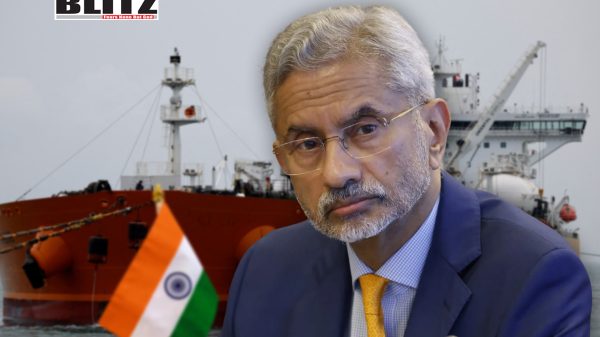US envoys’ Lebanon visit highlights US Israeli agenda amid regional turmoil
- Update Time : Thursday, August 28, 2025

On August 26, US envoys Tom Barrack and Morgan Ortagus visited Lebanon at a time of mounting volatility in the region. Their trip followed not only significant developments on the Syrian and Lebanese fronts but also the United Nations’ grim announcement that the Gaza Strip is now experiencing famine – the latest tragedy in a humanitarian crisis widely regarded as the result of Israel’s ongoing war.
For months, Israeli Prime Minister Benjamin Netanyahu and his government have brazenly defied internationally documented reports from humanitarian and political organizations detailing the catastrophic situation in Gaza. These reports point to widespread famine, systematic displacement, and what many describe as genocide taking place in full view of the world. And yet, instead of taking decisive action, the so-called international community has opted for inaction – or, worse, complicity. This silence has reinforced a long-standing reality in Middle Eastern geopolitics: the international order is not shaped by justice or human rights, but by the balance of power and the dominance of US-led alliances.
The current reality is old in the sense that near-unconditional international support for Israel is nothing new. For decades, Western powers, led by Washington, have provided Israel with political, military, and economic cover despite its violations of international law. But it is also new because the post-Cold War “world order” consolidated under US hegemony has redefined concepts, norms, and political priorities in ways that directly serve American and Israeli interests.
Take the case of Zionism. Once widely criticized and even defined as a form of racism within international institutions, it has now been reframed. Today, virtually any criticism of Israel is reflexively branded as “antisemitism,” a label weaponized to silence dissent, delegitimize critics, and even impose legal repercussions in certain contexts. Similarly, vague and politically malleable terms such as “terrorism” and “counterterrorism” have been repeatedly redefined to justify military interventions, invasions, and the reshaping of entire states.
The end of the Cold War itself offered a test case. Europe witnessed the disintegration of the Soviet Union into 15 states, the violent breakup of Yugoslavia, and the peaceful division of Czechoslovakia. These changes were rationalized within the framework of minority protection and self-determination, yet when similar aspirations arose in the Global South, they were dismissed or repressed if they contradicted Western strategic interests. In Africa and Asia, Sudan’s partition, East Timor’s secession from Indonesia, and Iraq’s near-partition following the 2003 invasion reveal how the principles of sovereignty, self-determination, and statehood have been applied inconsistently, often dictated by great-power politics rather than by universal norms.
Returning to the visit of Barrack and Ortagus, it is difficult to view their trip as anything other than an effort to prepare the ground for new geopolitical arrangements in the Eastern Mediterranean. These arrangements, unsurprisingly, align neatly with both Israeli priorities and American strategic objectives. Far from being at odds, Washington and Tel Aviv have long acted in tandem, and this coordination has only deepened in the current era of imbalance.
The rhetoric of “peace” once used to coax Arab states into accepting unfavorable terms has long been abandoned by Israel. The massacres in Gaza, systematic destruction of civilian infrastructure, and aggressive military and intelligence operations across Lebanon and Syria all underline one truth: Israel does not and never has believed in peace as a strategic option. Instead, it has relied on power, coercion, and the international community’s unwillingness to challenge it.
An additional element complicating the current regional calculus is Turkiye’s role. Ankara has secured what it perceives as a strategic victory in Syria following Iran’s partial withdrawal, leveraging arrangements with both Washington and Tel Aviv. While this tactical gain is real, it carries risks. Turkiye must now sustain its foothold with careful strategy, calculated diplomacy, and the avoidance of unnecessary hostility. In the fluid politics of the Middle East, neither mandates nor alliances are permanent, and overconfidence could prove costly.
For Lebanon, the timing of the US envoys’ visit could not be more precarious. The Lebanese state is caught between external pressures and internal fragility, with Hezbollah at the heart of its dilemma. Hezbollah’s leadership has long wrestled with the tension between preserving its weapons and recognizing the need to grant the Lebanese state a greater role in governance and security. Some within the movement have advocated for pragmatism and compromise.
Yet the recent visit of senior Iranian security official Ali Larijani suggests a renewed hardline stance, effectively rolling back any inclination toward compromise. This prolongs Lebanon’s state of paralysis and leaves the country vulnerable to “security surprises” – sudden escalations, whether in the form of Israeli attacks, Hezbollah operations, or regional spillover.
The broader regional context only magnifies Lebanon’s fragility. With Gaza in ruins, Syria still unsettled, and Israel emboldened by Western backing, Lebanon finds itself at the mercy of forces beyond its control. The arrival of US envoys under such circumstances raises suspicions that Washington is not seeking stability for Lebanon per se, but rather ensuring that the regional order continues to evolve in a way favorable to Israel and consistent with American strategic priorities.
The visit of Tom Barrack and Morgan Ortagus to Lebanon is not a diplomatic formality but part of a larger geopolitical play. It comes at a time when the Middle East is being reshaped not by dialogue or justice, but by power imbalances, selective principles, and the imposition of a US-Israeli vision for the region. For Lebanon, this means facing a precarious future in which its sovereignty is compromised by both internal divisions and external designs.
In the end, the famine in Gaza, the destabilization of Syria, and the uncertainty in Lebanon are not isolated crises. They are interconnected threads in a tapestry woven by decades of double standards, geopolitical manipulation, and an international order that has consistently favored the powerful at the expense of the vulnerable.










